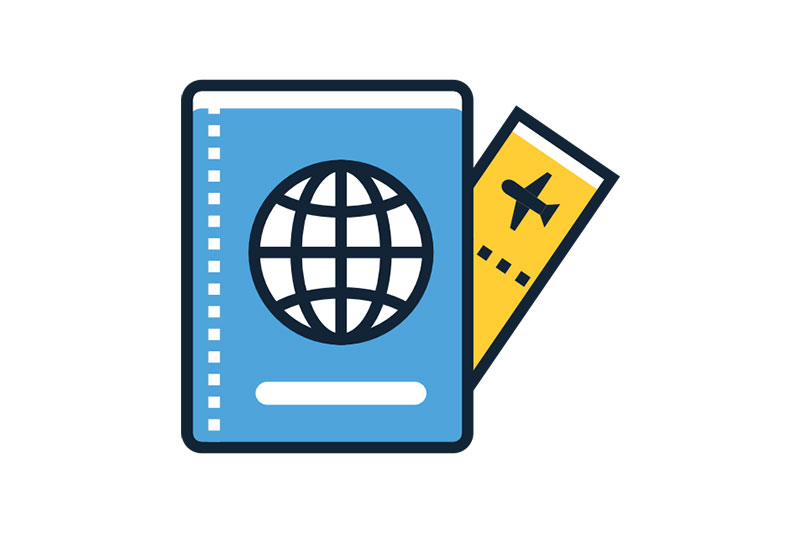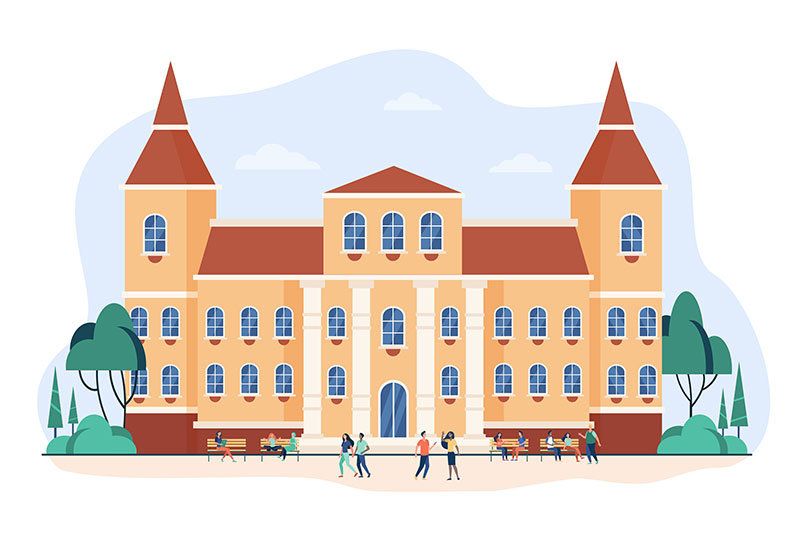Career Opportunities

International students with a job offer are qualified for an Open Work Permit, allowing them to work for any employer in Canada. This permit grants students the opportunity to work in the country for up to three years
Quick Visa Apprval

Stepping out of your comfort area and exploring something greater than before, culinary offerings, interesting Halloween parties, public gatherings, and festivals.
Good for Medicine Studies

Canada's renowned medical education system and good standard of living make it a desirable place for students to study medicine. Canadian medical schools.
Best Ranking Universities

In the QS World University Rankings 2023, a total of 28 Canadian universities maintain their strong positions, and the University of Toronto has even climbed one spot in the rankings. Additionally, according to the Times Higher Education's World University Rankings 2023, a notable 32 Canadian institutions have secured positions among the top universities worldwide.
Education in Canada
Overseas education in Canada is well-recognised in Corporate, Government and Education fraternity around the world. Canada has been ranked among top ten places to study by the International students of most countries, especially from India. As per one of the UN surveys, access to quality education, Global health care system and lowest rate of crime makes Canada the best place to live. Also, cities such as Vancouver, Toronto and Montreal have been recognized as the world class cities to live and work.
Enquiry Now
Enter your details and one of our Academic Advisors will contact you soon!
Best Courses to Study in Canada
Canada offers a wide range of courses and programs across various fields of study. The best course for you depends on your interests, career goals, and personal preferences. Here are some popular and sought-after courses in Canada
Engineering : Engineering programs are available in various disciplines, such as civil, mechanical, electrical, and software engineering.
Business and Management : Canada offers a wide range of business-related programs, including degrees in finance, marketing, management, and entrepreneurship.
Information Technology (IT) : Canada has a growing technology sector, and IT courses, including computer science, software engineering, and data science, are highly sought after.
Healthcare and Medicine : Canada's medical schools and healthcare programs are highly regarded. Consider degrees in medicine, nursing, pharmacy, and health sciences.
Agriculture and Agribusiness : New Zealand has a strong agricultural sector, and programs in agriculture, agribusiness, and agritech are well-regarded.

Qualification Framework for International Students in Canada
The Australian Government designed the Australian Qualifications Framework (AQF) to ensure that qualification titles across the country are consistent and represent the same high standards of education.
- Diploma
- Advanced Diploma, Associate Degree
- Bachelor Degree
- Bachelor Honours Degree, Graduate Certificate, Graduate Diploma
- Master Degree
- Doctoral Degree
| Levels | Name of qualification |
|---|---|
| Levels 1-4 | Certificate |
| Levels 5-6 | Diploma |
| Level 7 | Bachelor's Degree |
| Level 7 | Graduate Certificate/Graduate Diploma |
| Level 8 | Bachelor Honours Degree |
| Level 8 | Postgraduate Certificate/Postgraduate Diploma |
| Level 9 | Master's degree |
| Level 10 | Doctoral Degree |

Intake in Canada
Two intakes per year Most New Zealand universities have two main intakes per year, with the first intake usually in February or March and the second intake in July or August.
- 1st Semester From February Intake
- 2nd Semester From July Intake
This intake runs from the end of February or the beginning of March until the end of May or the beginning of June. For the majority of universities and courses, this is the main intake.
This intake runs from the end of July or the beginning of August through the end of October or the beginning of November. Certain universities and courses may also offer a mid-year intake in July for some curricula.

Which Exam is required to study in Canada
Many international students dream of Studying in Canada due to the high-class universities, diverse environment and abundant career prospects. You must appear for standardised Canadian exams to get admission into a Canadian college. You should know a few tests if you intend to study in Canada.
The Canadian exams required for admission are divided into language proficiency and academic tests. The language proficiency tests are necessary to determine your English proficiency, whereas the academic tests evaluate your knowledge in various areas.
The required minimum score varies by institution and program but is often around 6.0 to 7.0 for undergraduate programs and 6.5 to 7.5 for postgraduate programs.

Scholarship Opportunities in Canada for International Students
Canada offers various scholarship opportunities for international students to support their education at the undergraduate, graduate, and doctoral levels. Here are some prominent scholarship programs and resources for international students in Canada:
Vanier Canada Graduate Scholarships:These scholarships are awarded to doctoral students who demonstrate leadership skills and a high standard of scholarly achievement in the social sciences, humanities, natural sciences, engineering, and health sciences.
Canadian Commonwealth Scholarship Program: Administered by the Canadian Bureau for International Education, this program provides scholarships for students from Commonwealth countries to pursue doctoral studies in Canada.
Canada Graduate Scholarships (CGS) Program: This program provides financial support to high-caliber graduate students undertaking master's or doctoral programs in Canada.
University-specific Scholarships: Many Canadian universities have their own scholarship programs for international students. These scholarships may be based on academic merit, leadership skills, or a combination of factors. Check with the international student office or the scholarship office at the university you are interested in.
Global Affairs Canada Scholarships: The Canadian government, through Global Affairs Canada, provides various scholarship programs for international students. These include the Emerging Leaders in the Americas Program (ELAP) and the Canada-ASEAN Scholarships and Educational Exchanges for Development (SEED) program.

